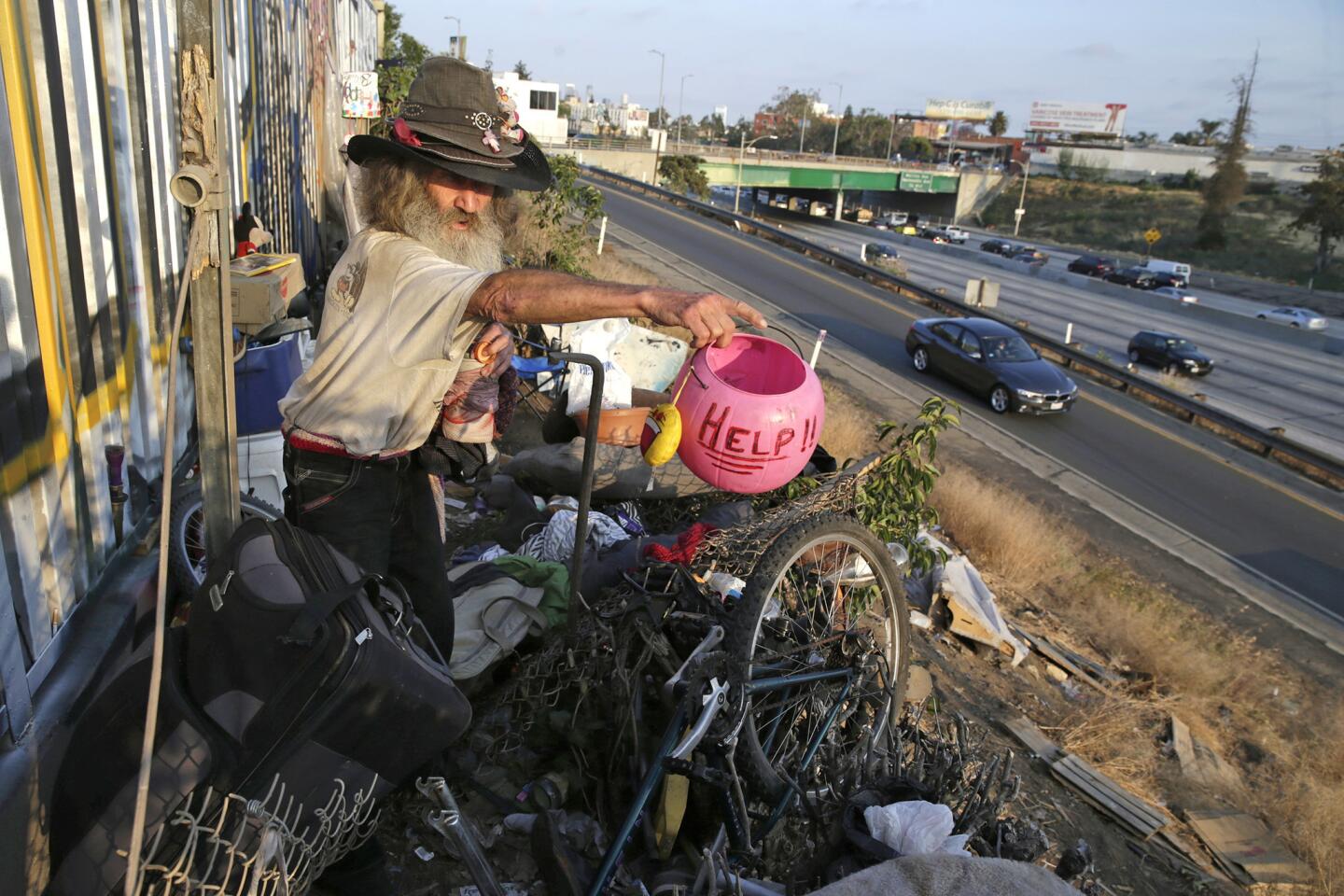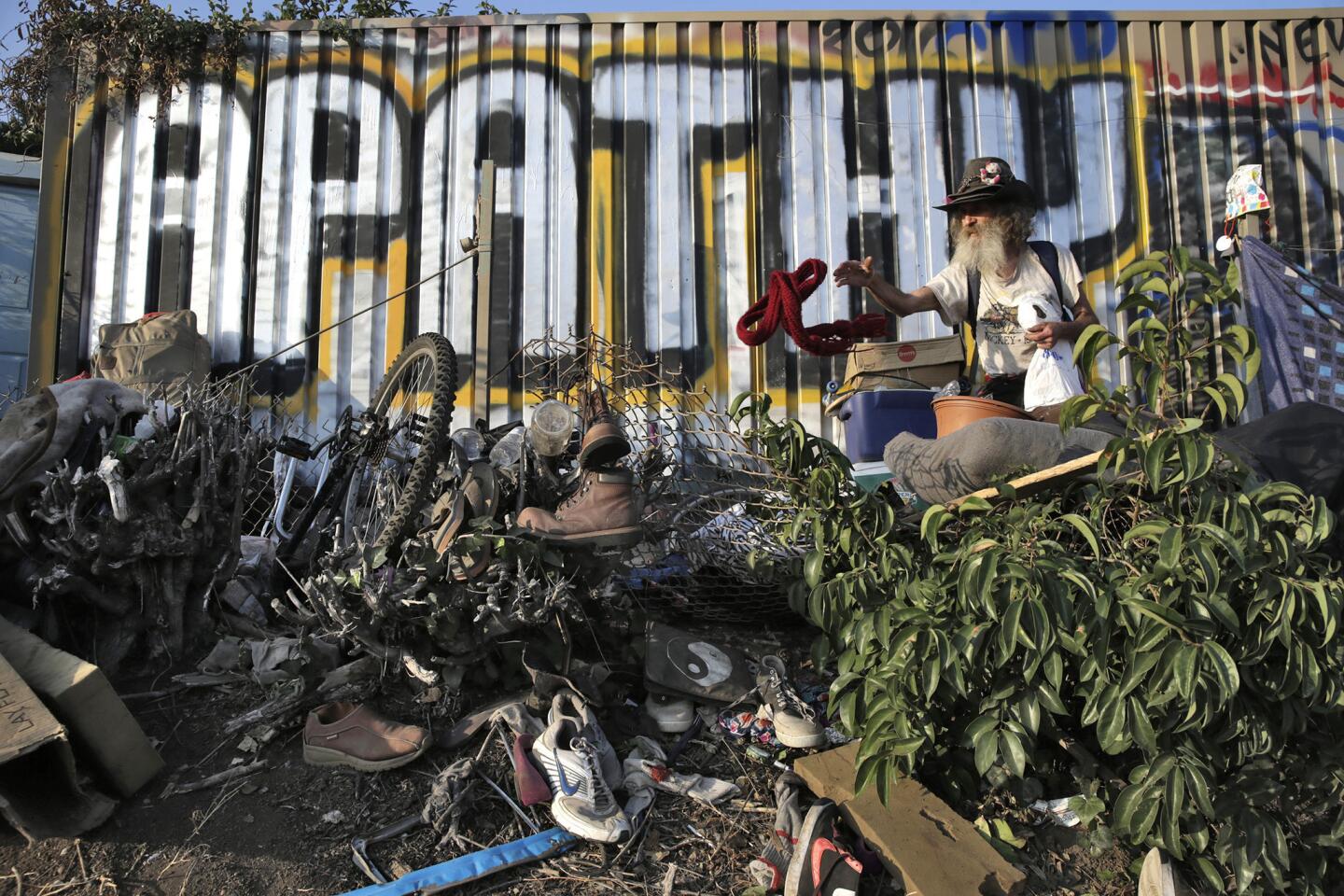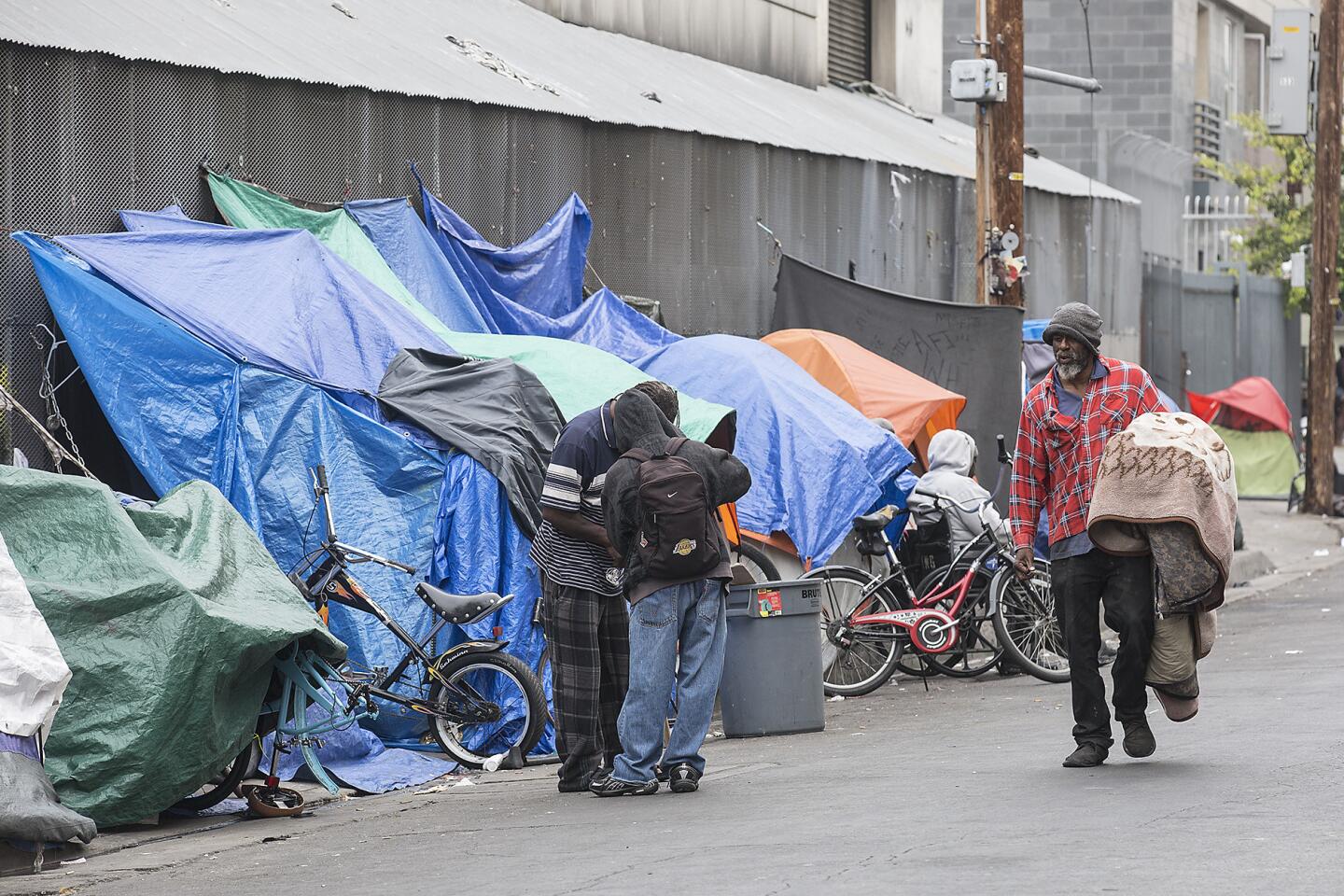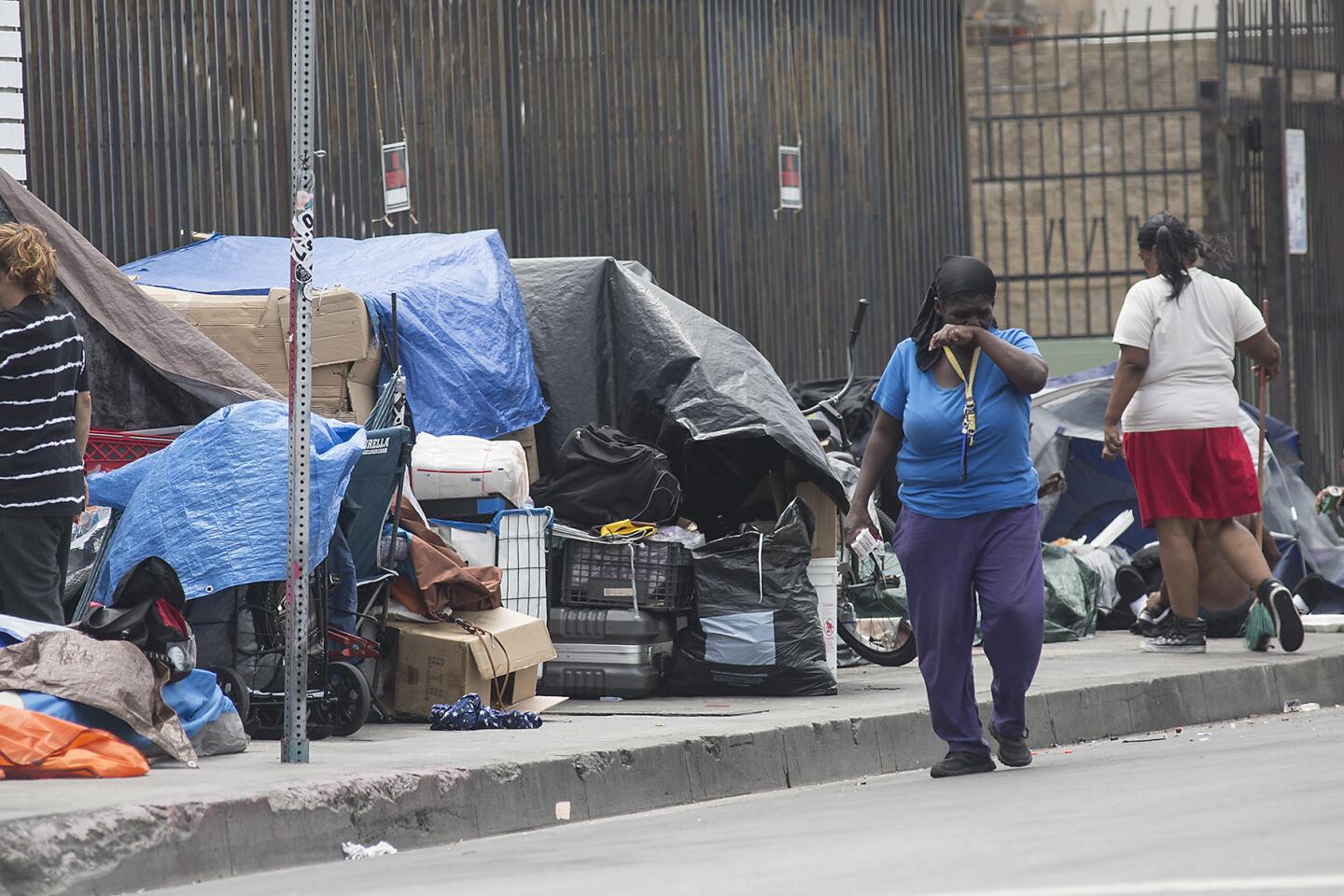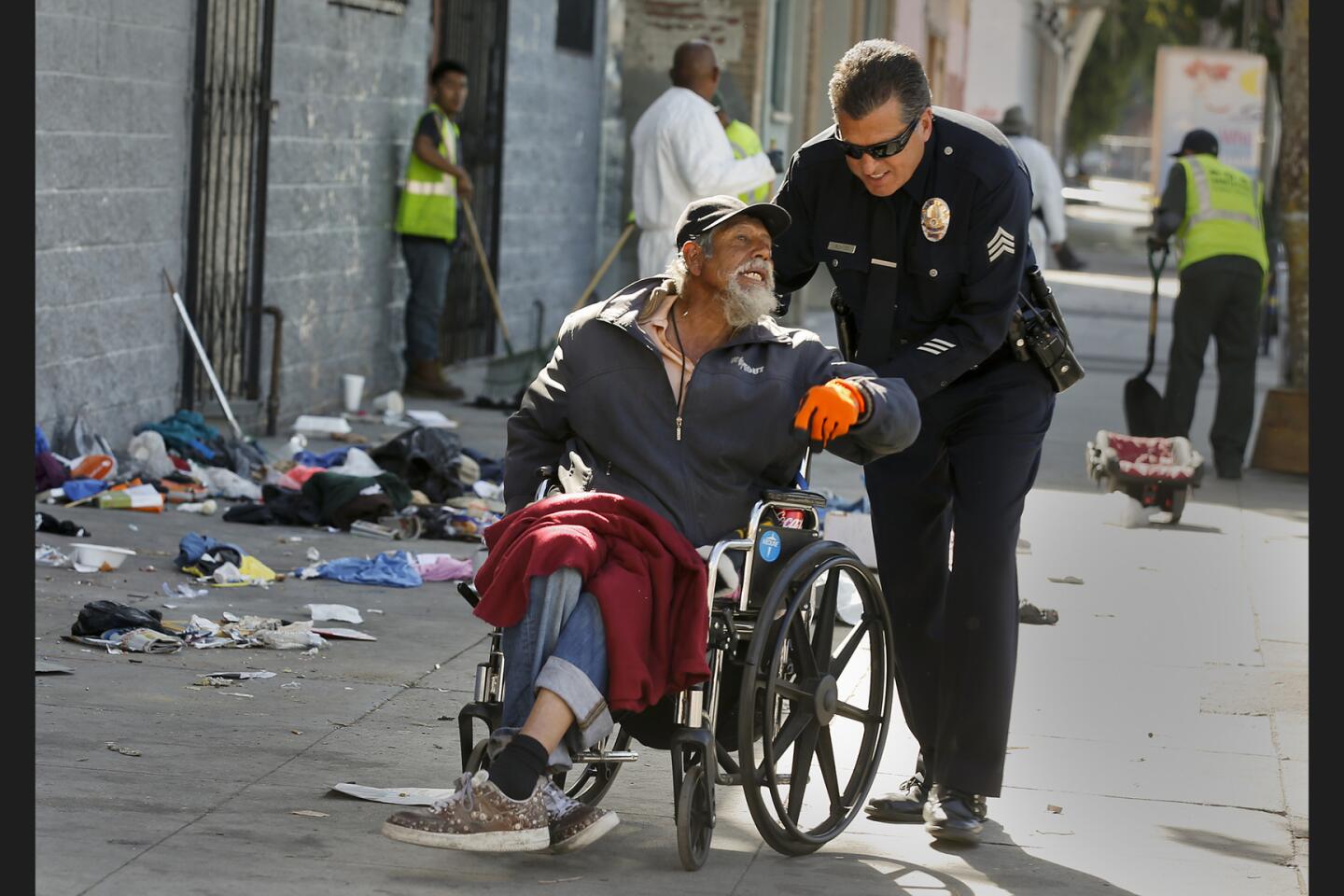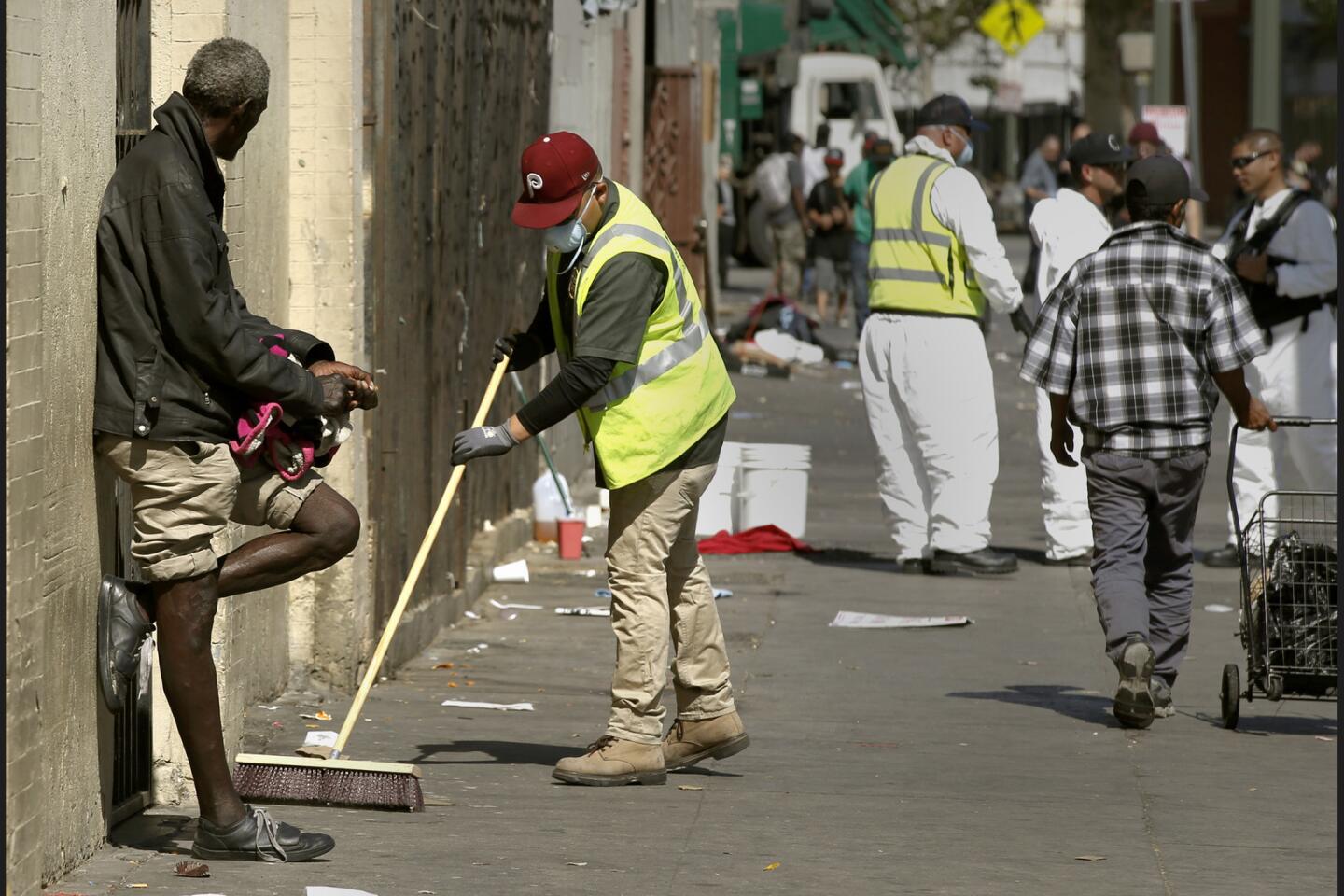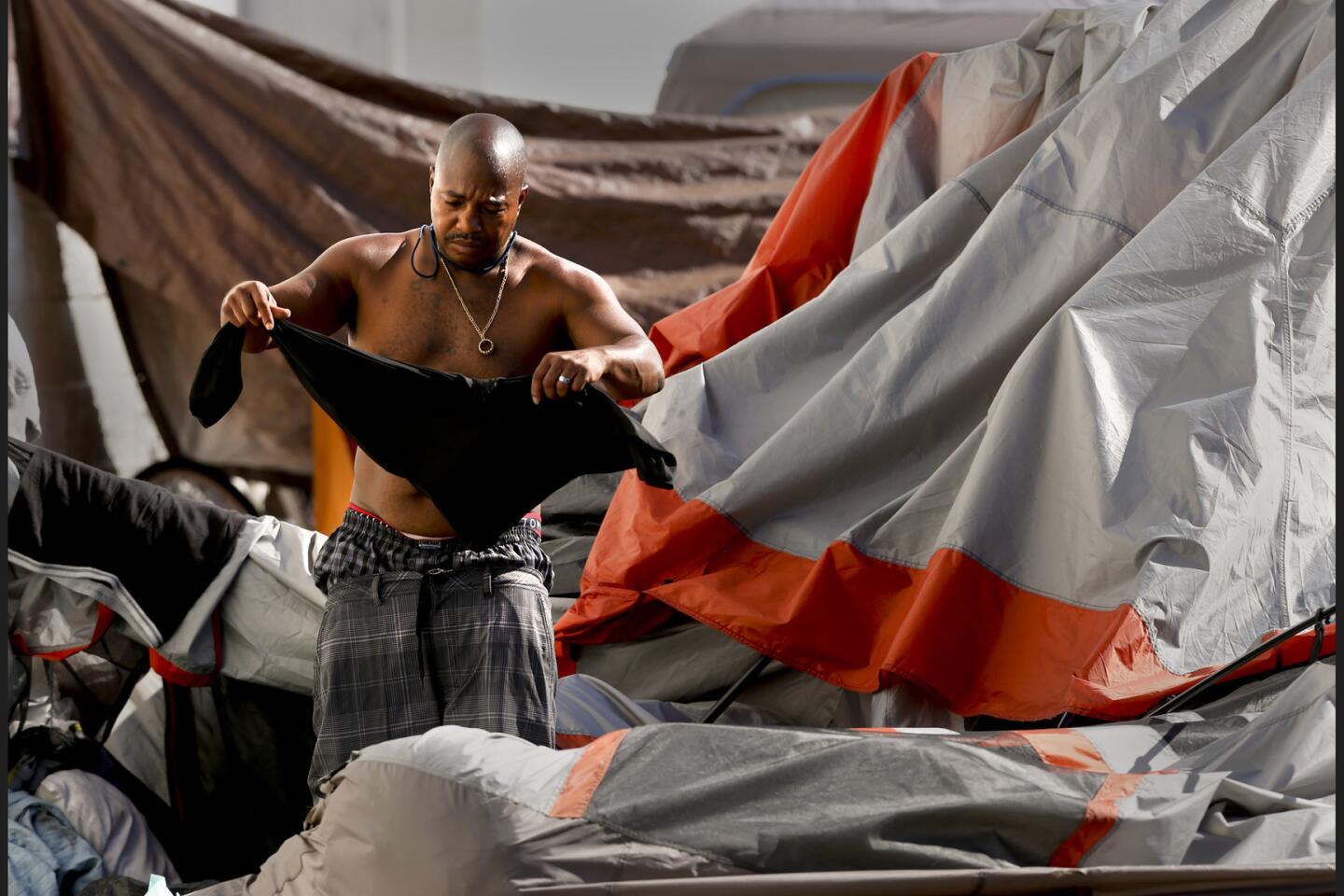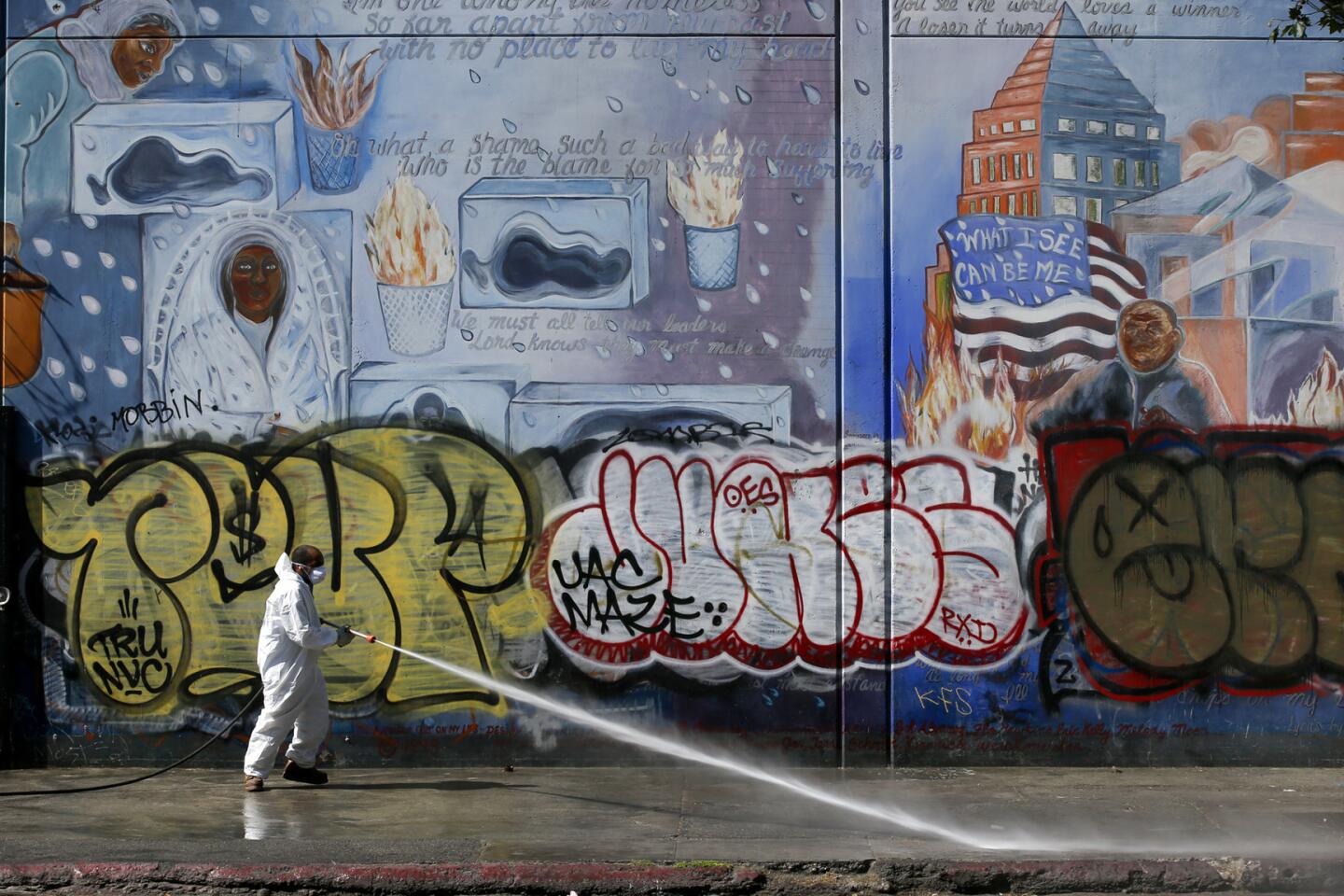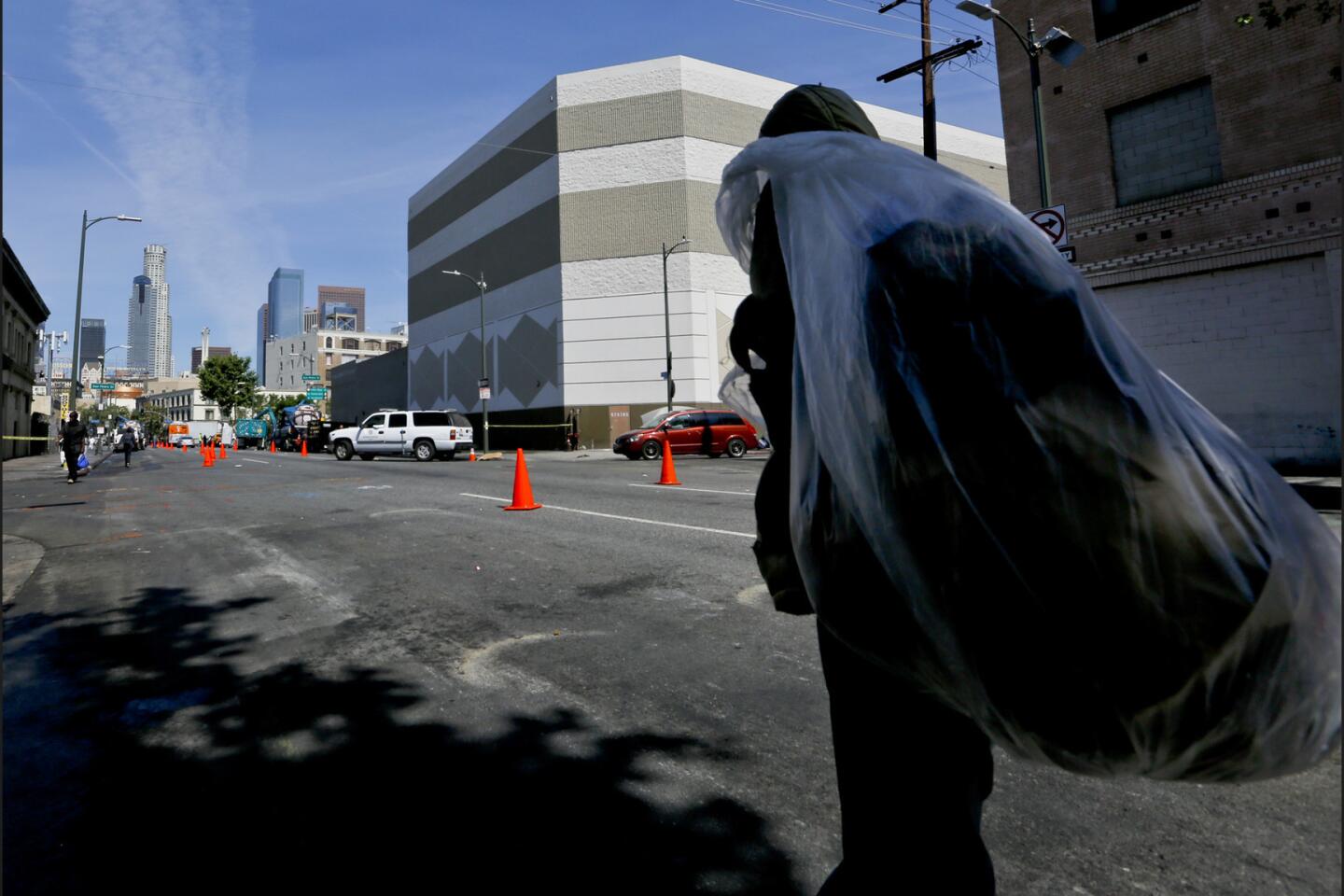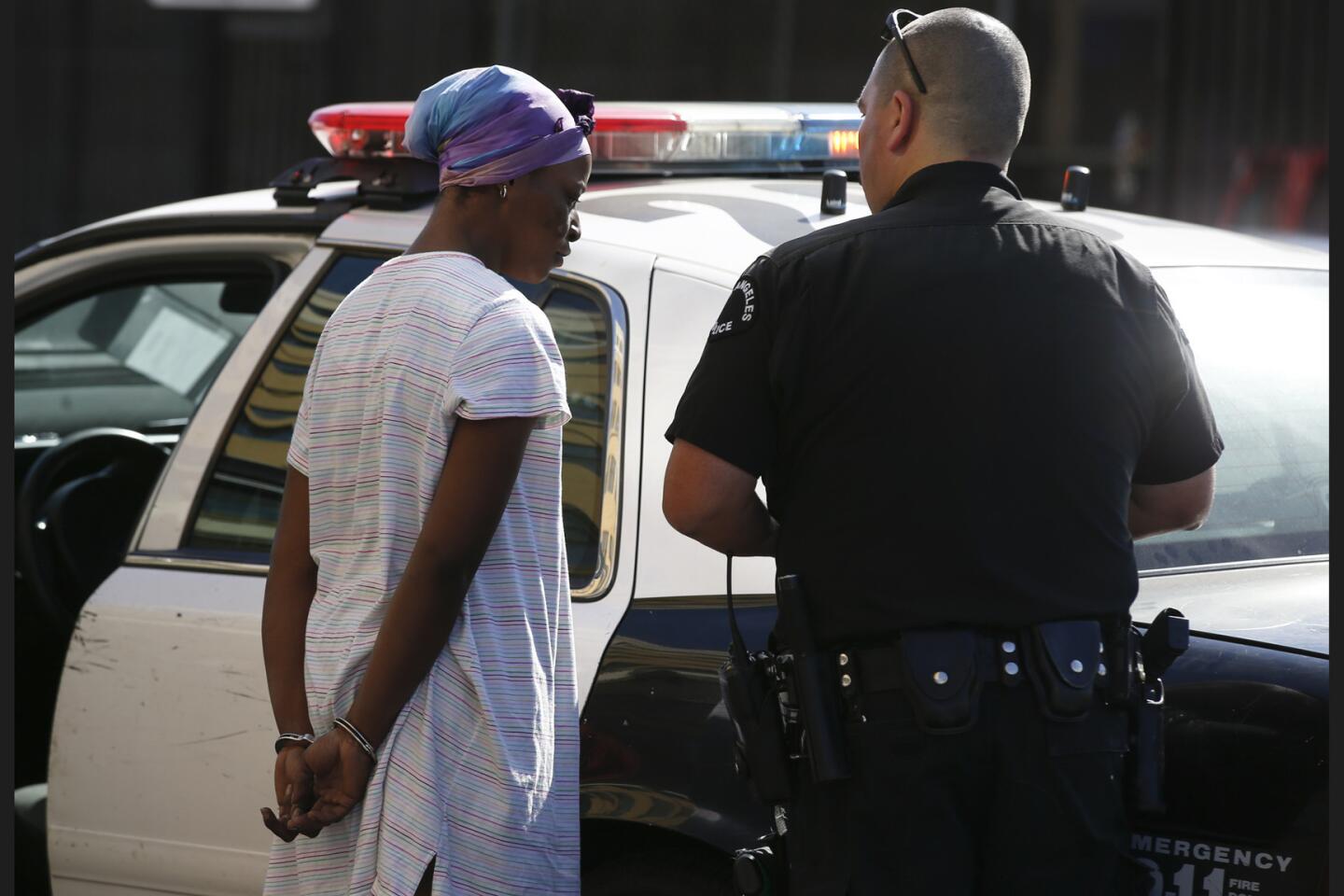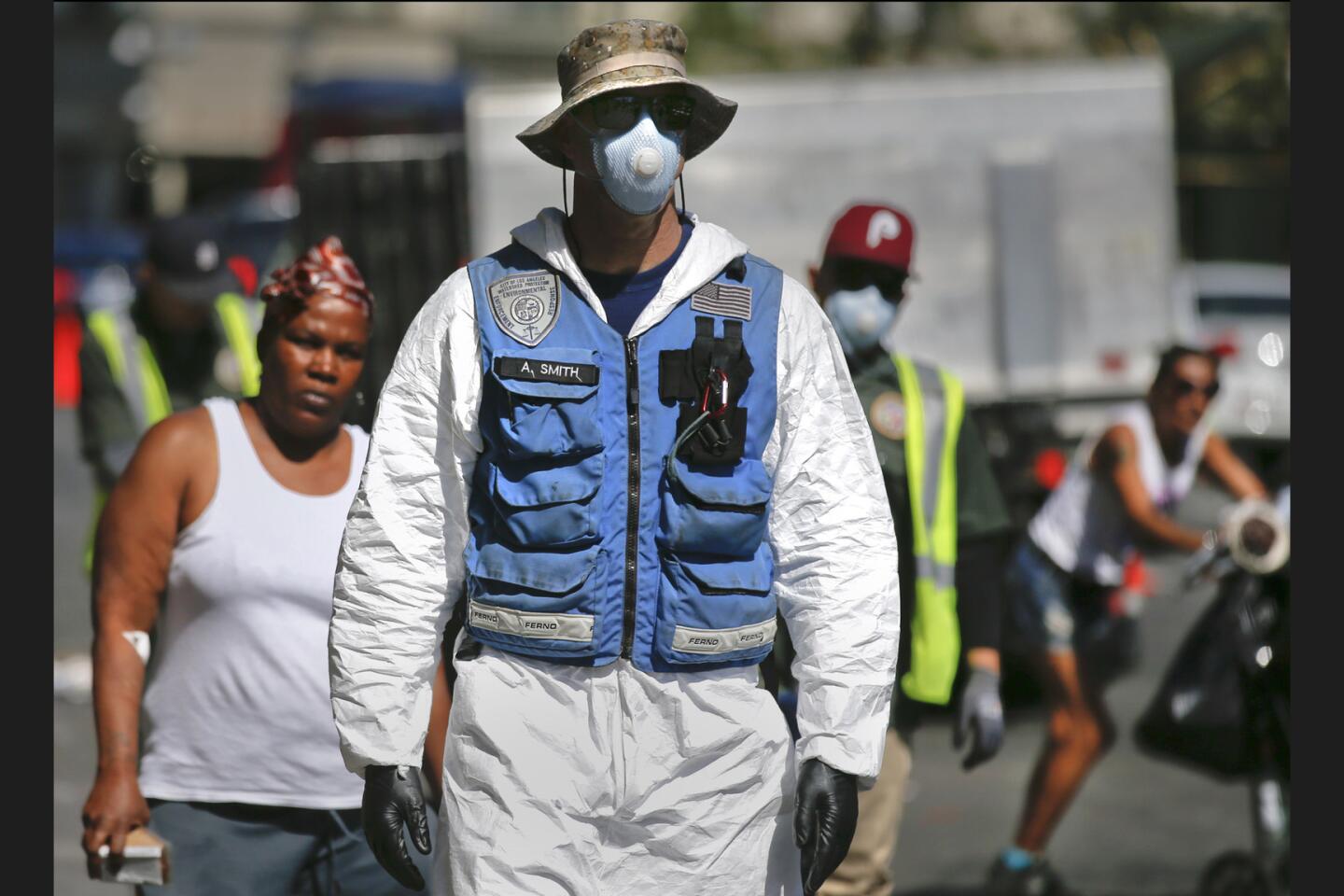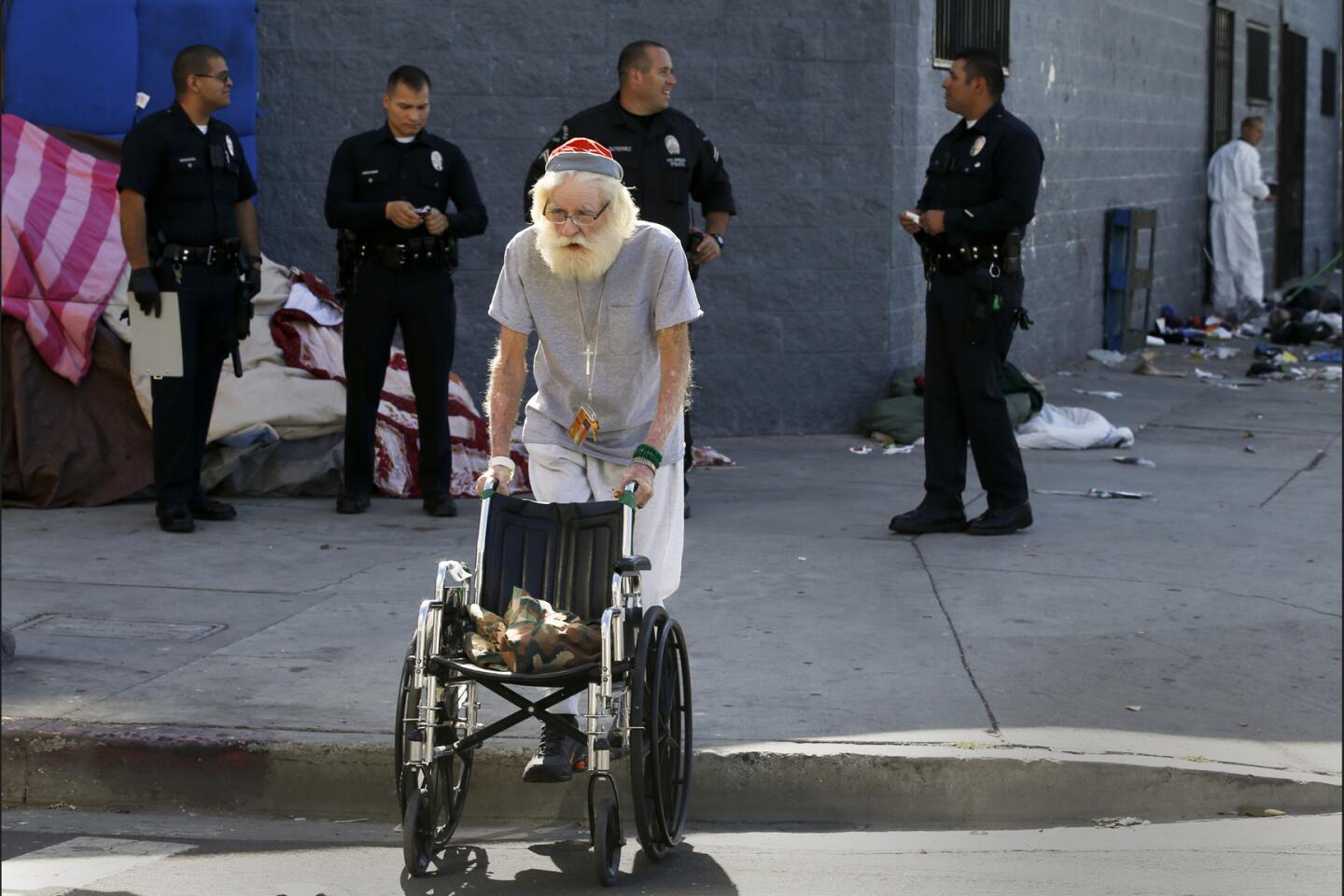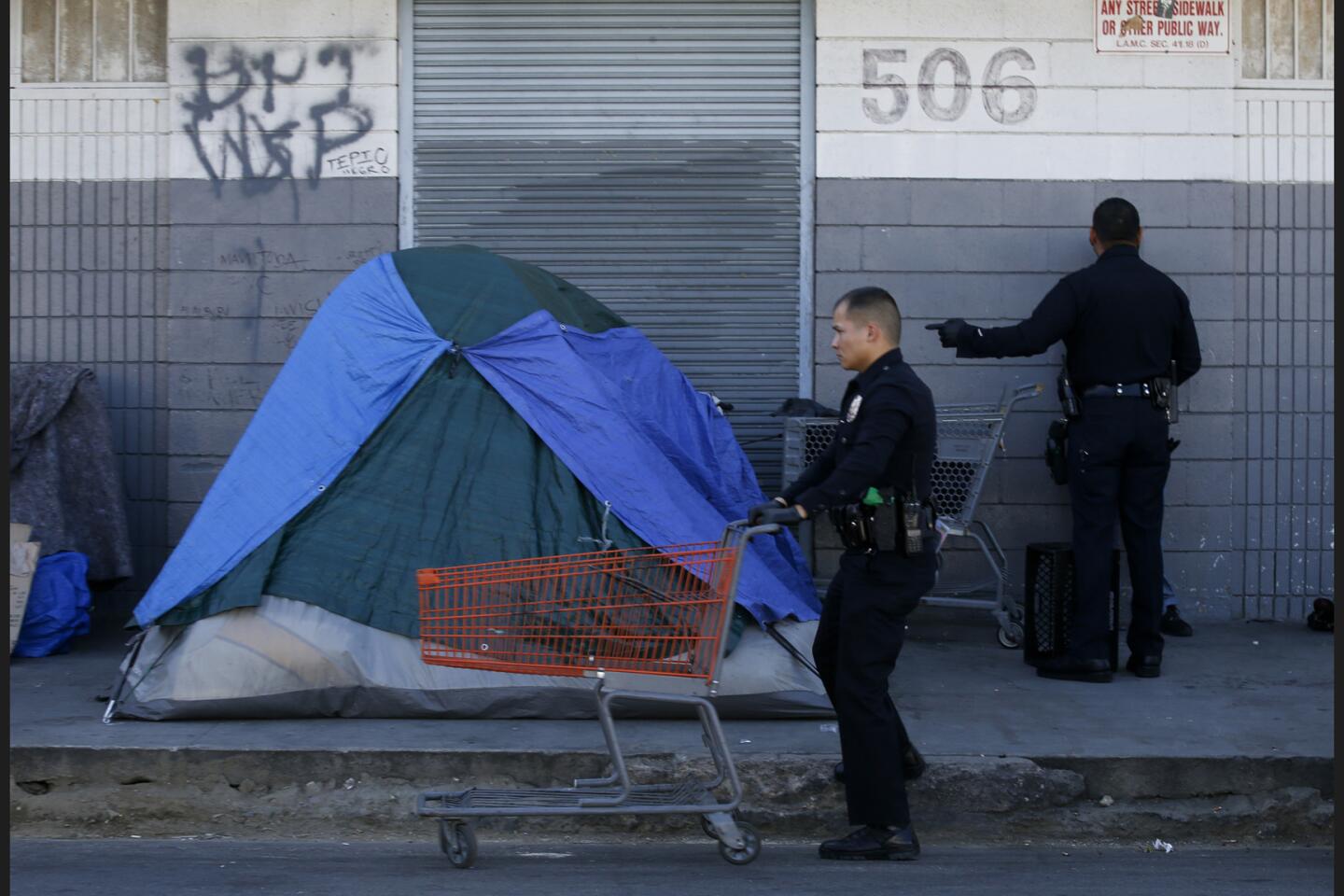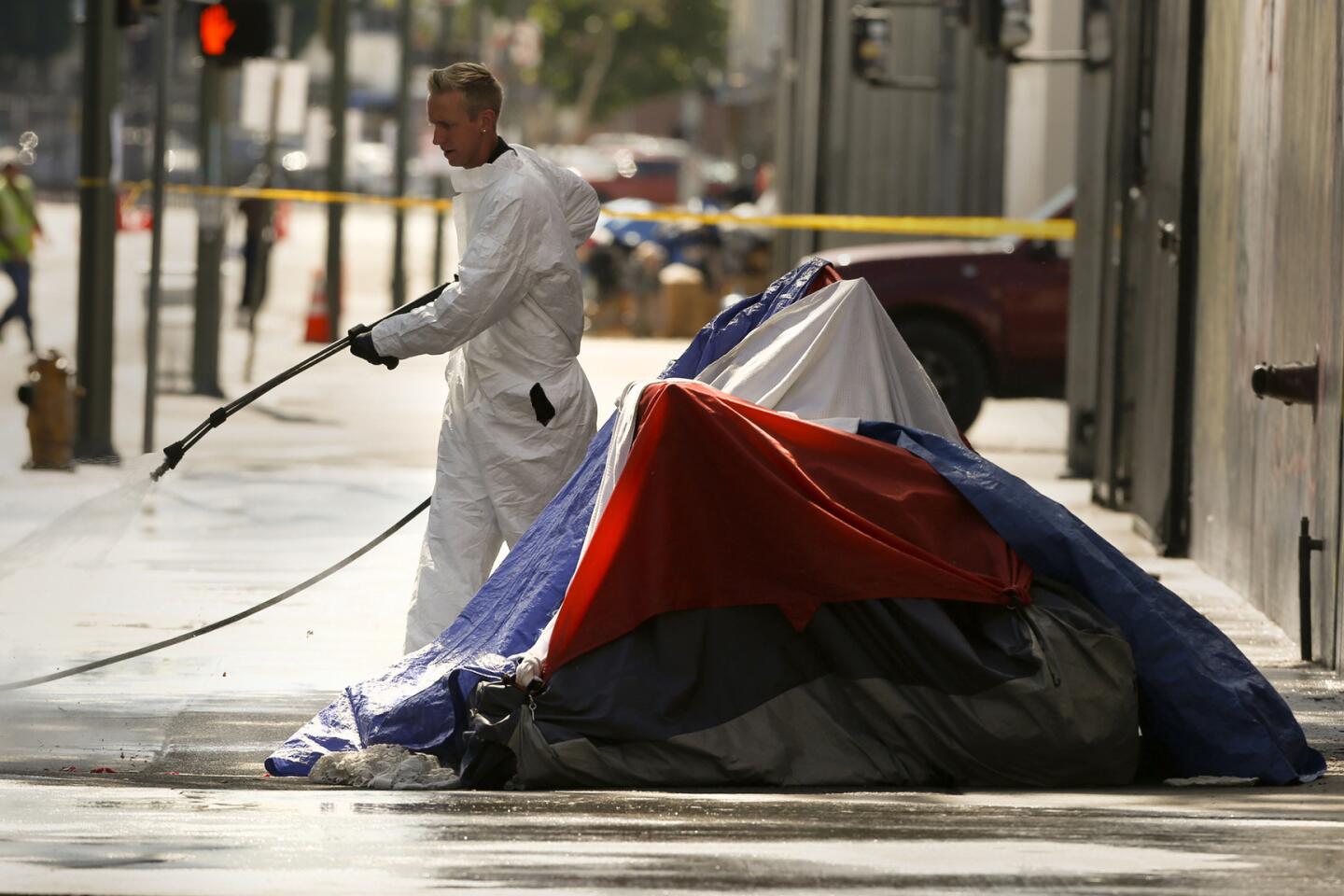Column: Five ways to end homelessness in L.A.
- Share via
I thought I’d swing by the supermarket in my neighborhood Tuesday morning to see if I could find a woman who lives in a van that’s often anchored in the store’s parking lot.
Last time I saw her, I asked how she was.
“All I have is Social Security,” she said, “and there’s no way I can afford a place on that alone.”
Yeah, I’ve heard that a few times.
She wasn’t at the store, so I tried the senior center she visits on Riverside Drive, near Los Feliz Boulevard. No sign of her.
But a woman named Ann drove up in a van she sleeps in when friends or relatives don’t have space for her.
Then a guy named Frank motored in, parked the Dodge van he’d slept in the night before, and started frying eggs on his camper stove.
While I was talking to Frank, Keith pedaled in on his bike and said he’d pitched a tent on skid row the night before.
And on and on it goes.
This is my neighborhood, home of the homeless, like so many other Los Angeles County neighborhoods.
The numbers are up again, as they have been every year since 2013. In the latest tally, 47,000 people don’t have homes. About 28,000 of them are in the city of Los Angeles, an 11% increase over last year.
Why the rise?
Low wages. Ridiculous housing prices. Untreated mental illness. All the usual stuff.
So what do we do?
I don’t have all the answers, but I’ve got five thoughts to share.
First: Someone has to step up.
“We can bring these numbers down,” L.A. Mayor Eric Garcetti said of the increase in homelessness. “This could be the year we begin to turn the tide.”
Not at the rate we’re going.
The city, like the county, has a solid plan to deliver more services and housing. And Councilman Mike Bonin gets credit for pushing hard on creative solutions like making use of a senior center as a shelter and erecting housing on city-owned lots.
But the $138 million budgeted by Garcetti this year is more goal than guarantee, with roughly half of it still something of a mirage.
L.A. County has a more solid $150-million budget for homelessness, and even at that, Supervisor Sheila Kuehl warned that modest sums won’t counter economic trends that are “forcing people out of their houses.”
Translation: The steady advance of tent cities and rolling homes is headed soon to your neighborhood, if it’s not already there.
It’s time for Garcetti, and Kuehl, and other city and county officials, to start campaigning for a reliable source of funding — a sales tax, a bond measure, or fees on new development.
Come on, somebody has to take this on. We’re going to become the next Calcutta unless some 21st-century hero steps up.
See more of our top stories on Facebook >>
Second: Support the $2-billion bond idea.
Former state Sen. Darrell Steinberg is running for mayor of Sacramento, where a signature issue is that city’s sizable homeless population. And one of his answers is a compelling idea he came up with to build thousands of supportive housing units across the state in years to come, without any new taxes, for mentally ill people who are homeless.
Steinberg was the architect of voter-approved Proposition 63, the Mental Health Services Act of 2004, which put a 1% tax on millionaires and now produces roughly $1.75 billion a year. His idea, which has been embraced by state Sen. Pro Tem Kevin de León (D-Los Angeles), would be to use $130 million of that amount annually to finance a $2-billion housing bond.
“You can’t help somebody recover if they’re out on the streets,” Steinberg said. “This is probably overstating it, but it would be nearly criminal to not capitalize on a $2-billion ongoing source of revenue.”
L.A. city and county officials have the largest homeless populations in the state, and they should be the biggest cheerleaders for the idea that could become a legislative bill in the next few months.
Third: Shamelessly steal good ideas.
In Santa Barbara, rolling homes are being directed off neighborhood streets and into safe parking lots overnight, and some of the RV and van dwellers are being linked up with permanent housing.
As my colleague Gale Holland reported, Los Angeles is studying the model, and none too soon. L.A. County has a massive fleet of 3,300 inhabited vehicles.
City and county-owned lots? The Convention Center? Hospitals?
We’ve got plenty of options for overnight parking. Then let’s take the next step by bringing in temporary MASH units and service referral centers to help this rolling armada of the beleaguered regain a foothold.
Fourth: Support the supporters.
I’ve visited nonprofit mental health and homeless service centers around the country, and Los Angeles has some of the best. So when readers ask me what they can do to make a difference, I often tell them to volunteer at or donate to one of these organizations.
My musician buddy, Nathaniel, has been helped over the years by Housing Works and by Lamp Community, which has now merged with the Ocean Park Community Center. In L.A. proper, there’s PATH, Step Up and countless other great nonprofits helping people off the streets.
If you want to know about one in your community, email me and I’ll send you some recommendations.
Fifth: The Sister Mary principle.
One of my heroes in this field is Sister Mary Scullion of the Sisters of Mercy in Philadelphia. As a pioneering advocate, she coaxed mentally ill people off the streets and into therapy, housing and jobs back in the 1980s, and she now runs a recovery empire.
Years ago, she was telling me about her plan to turn a 144-unit apartment building into a supportive housing center in a wealthy downtown area of the city. Unsurprisingly, she faced some opposition, just as we do here in Los Angeles whenever a housing or service center is proposed beyond the out-of-sight, out-of-mind confines of skid row.
The Philadelphians told Sister Mary they already had a big enough homeless population as it was.
“They’re sleeping on our doorsteps,” they told her.
“I know,” said Sister Mary. “That’s why we’re here.”
L.A. is an international center of wealth, achievement, creativity and ambition.
And the homeless crisis has us whipped?
Pray for us, Sister Mary.
ALSO
Is quinoa California’s next niche crop?
This California desert town is experiencing a marijuana boom
More to Read
Sign up for Essential California
The most important California stories and recommendations in your inbox every morning.
You may occasionally receive promotional content from the Los Angeles Times.
